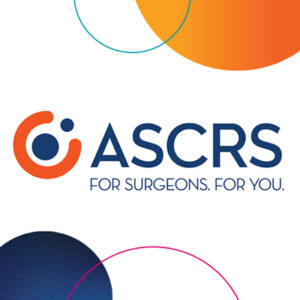Practice Management
April 2023
by William Rabourn Jr., and Jill Maher, MA, COE
For young ophthalmologists finishing their fellowship, choosing which practice to join can be a daunting task. Up to this point, many decisions have been made for them. Now they have the opportunity to choose which practice to join, and the options seem endless. Determining which practice to join is a decision that warrants expertise, time, and preparation.
Because this is a decision many ophthalmologists have been waiting years for, it is important to not be fearful but rather empowered about the decision. Don’t feel intimidated or anxious.
Because this is a decision many ophthalmologists have been waiting years for, it is important to not be fearful but rather empowered about the decision. Don’t feel intimidated or anxious. Engage professionals experienced in contract negotiations, particularly within ophthalmology. Utilize the abundant resources available through ophthalmic associations, journals, groups, podcasts, etc. Be prepared to discuss the details and ask the hard questions.
This decision is the culmination of years of hard work. It should be treated as such.
Interview prep
A strong interview can put an ophthalmologist in a good position when entering contract negotiations. Do the homework and become familiar with the practice before interviewing by exploring the website, online reviews, and social media channels.
An interviewing ophthalmologist stands a better chance of arriving at an agreement with the practice when both parties have a realistic understanding of each other’s expectations, so come prepared with plenty of questions.
During the interview process, applying ophthalmologists should outline and rank priorities: salary, geography, culture, organizational structure, subspecialties, practice volume, ownership. What is most important to you?
- Salary
- Ownership
- Volume
- Subspecialties
- Staff and culture
- Facility and technology
- Geography and recreation
- Fringe benefits
The opinion of significant others cannot be understated here as well. Deals can fall apart because a spouse is unhappy, so be sure to engage and involve significant others in this process.
Be timely

After the onsite interview, immediately write a follow-up email thanking them for their time and briefly reiterate your interest and why you are the right candidate for the position. Take initiative and attach your references to your “thank you” email. Many fantastic candidates get passed up because they forgot this important step in the process.
Communicating priorities and non-negotiables prior to receiving the contract helps establish expectations and serves to help shape the contract itself. Without thorough discussion on these points, the ophthalmologist may put themselves in a difficult position when it comes time to negotiate.
Contract analysis
Clear, honest communication from both parties during contract negotiations is paramount. Now is the time for both parties to make their expectations, needs, and wishes clear. The easiest way to begin negotiating is by asking for clarity around the aspects of the contract that you want to negotiate. A young ophthalmologist unfamiliar with the complexities of such a contract cannot, with confidence, determine what to negotiate: Is this good? Is this unfair to me? How do I know? With so much on the line, hiring an ophthalmic consultant experienced in these deals or an attorney is vital.
However, make sure that you are the one negotiating and not the consultant or attorney you hire. This is your opportunity to build a relationship with the practice that you will hopefully be working with for years to come. If you feel the need to negotiate every aspect of the contract, maybe it isn’t the right opportunity for you. Prioritize the three most important aspects of the contract.
Once a contract is signed, negotiating is over, and the deal is done. Regret is what every young ophthalmologist wants to avoid in this scenario. Watching out for red flags and asking tough questions is the best way to avoid regret and feel empowered when putting ink to paper. Communication is key throughout the negotiating process and will help both parties understand needs and expectations as you build a successful future together.
Demonstrate respect and appreciation for the opportunity and focus attention on your top three priorities in the contract that you wish to negotiate. Show flexibility and willingness to do whatever it takes to help the practice. This helps ensure the contract will be a win/win opportunity.
Enjoy the process and you will make the right decision for you.
Editors’ note: The authors will be giving a presentation on this topic at the ASCRS Annual Meeting on Monday, May 8 at 8:00 a.m.
About the authors
Jill Maher, MA, COE
Principal Consultant
Maher Medical Consulting
Chicago, Illinois
William Rabourn Jr.
Managing Principal
Medical Consulting Group
Springfield, Missouri
Contact
Maher: jmaher@mahermedicalconsulting.com
Rabourn: brabourn@medcgroup.com



